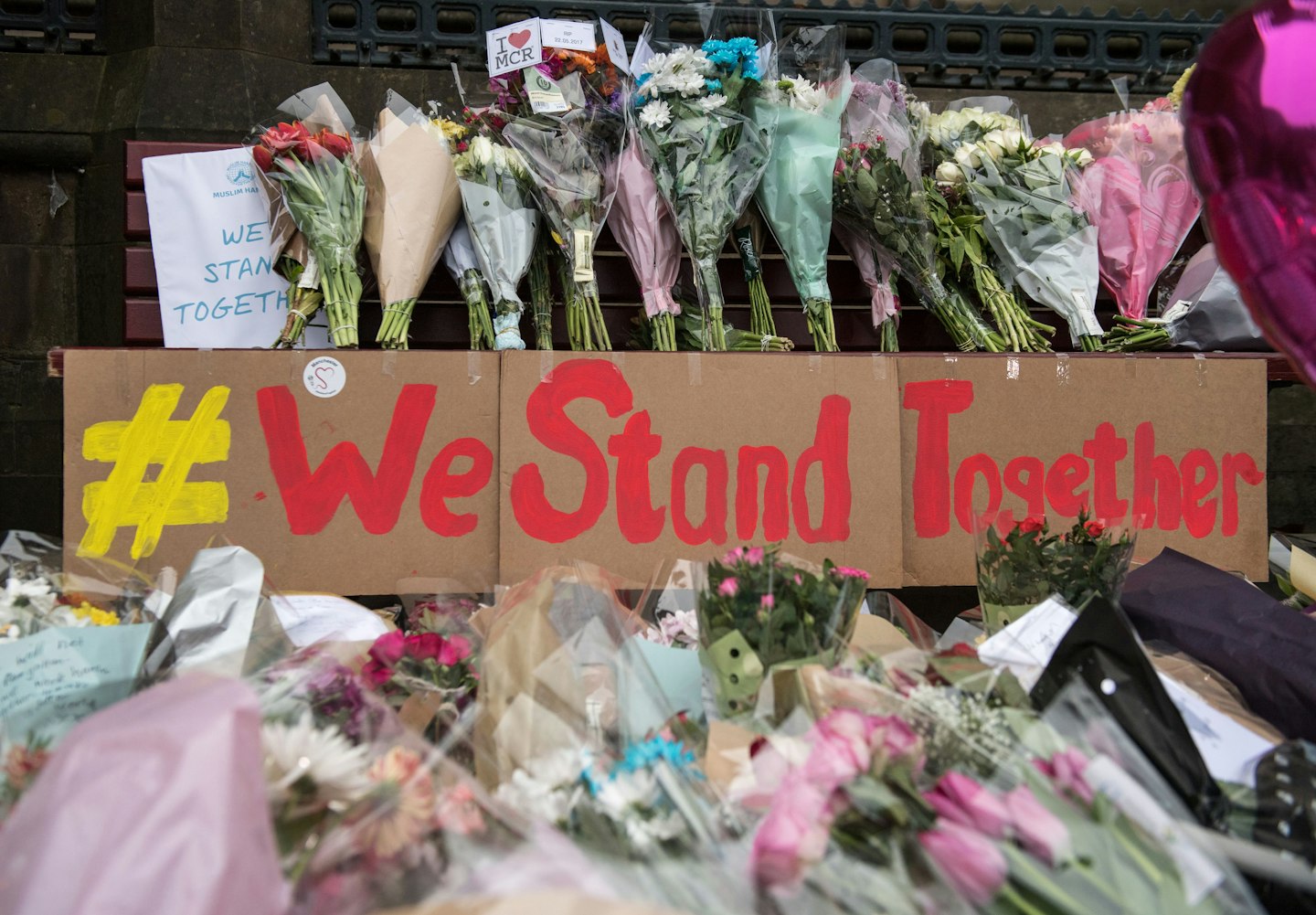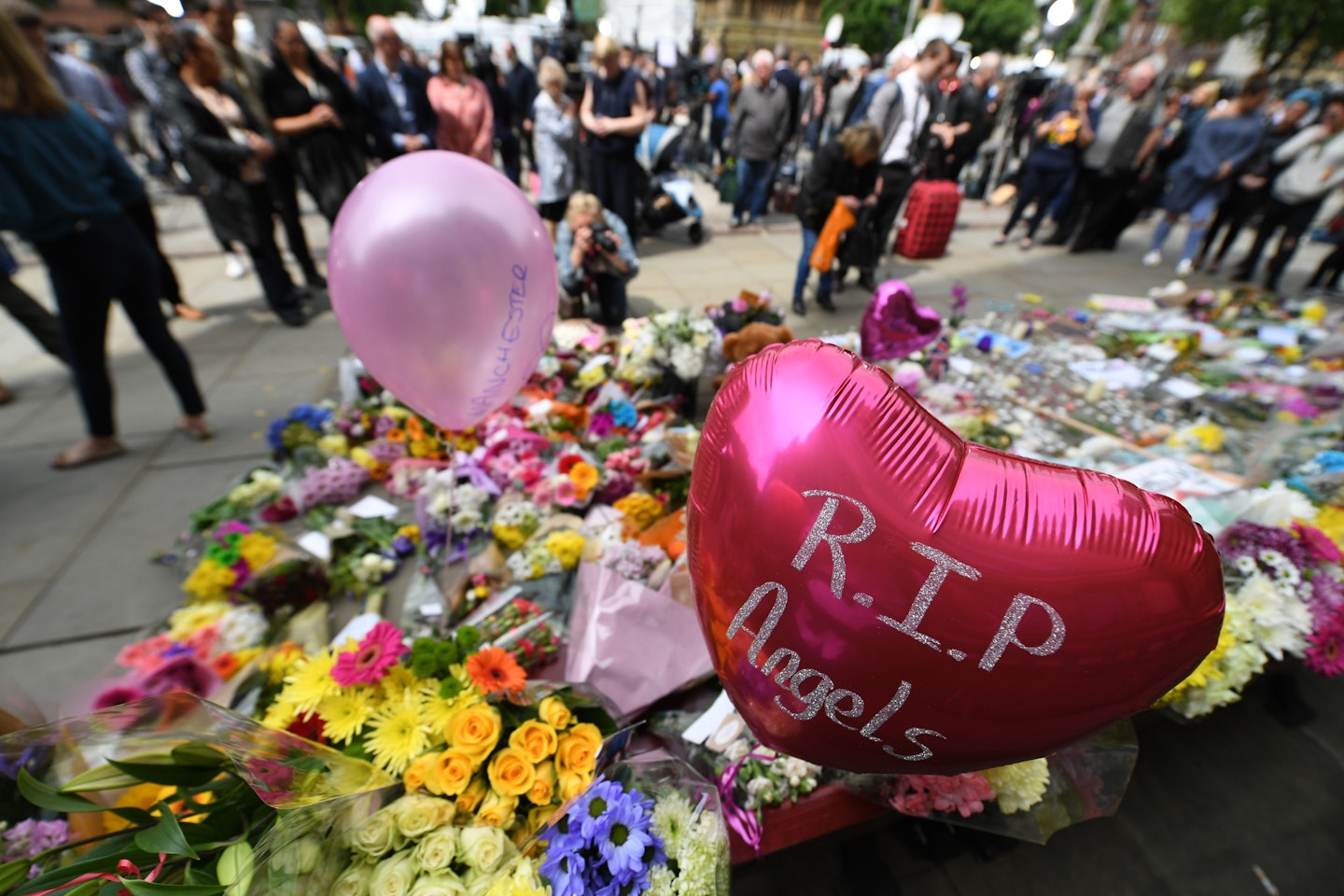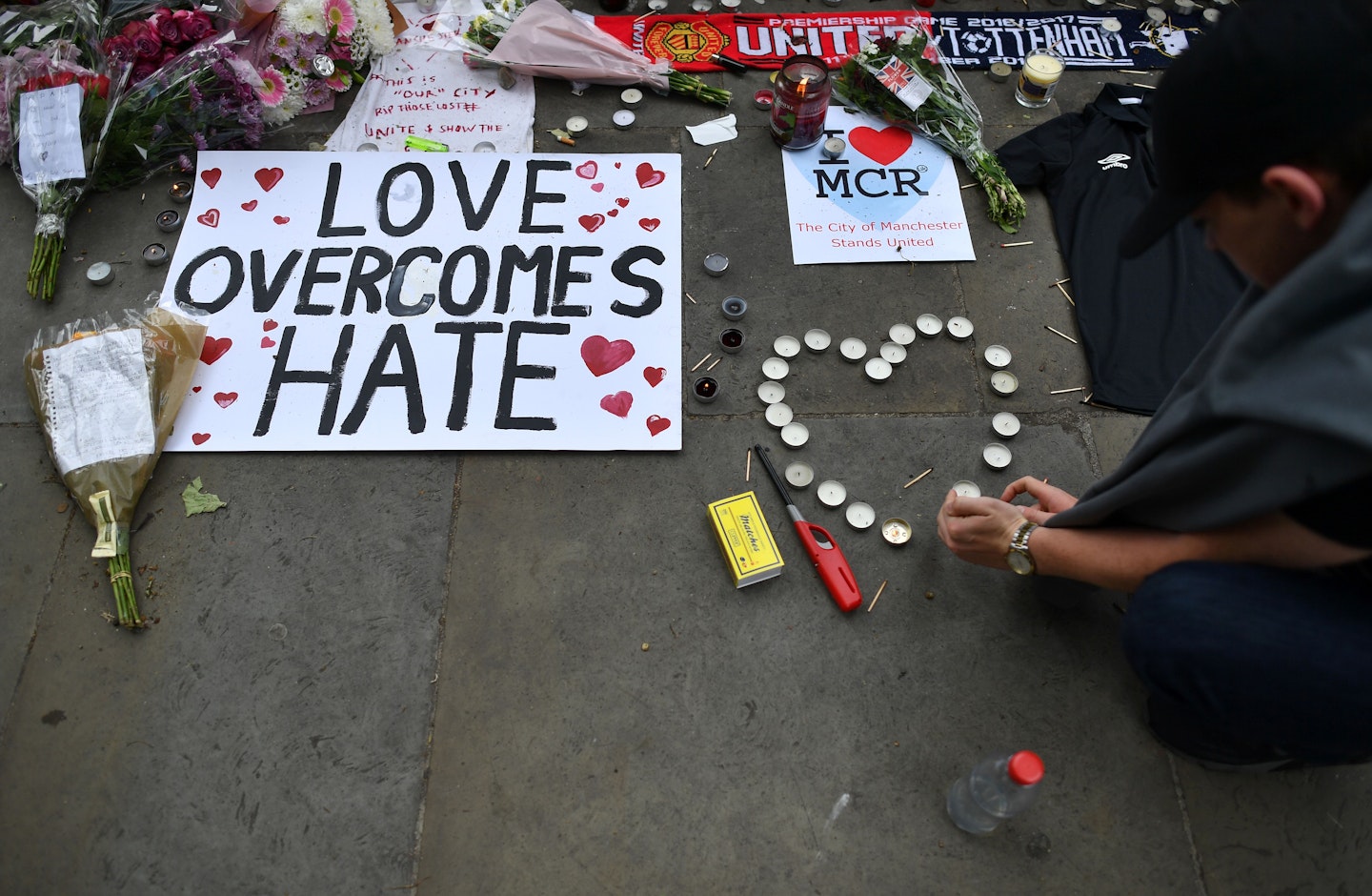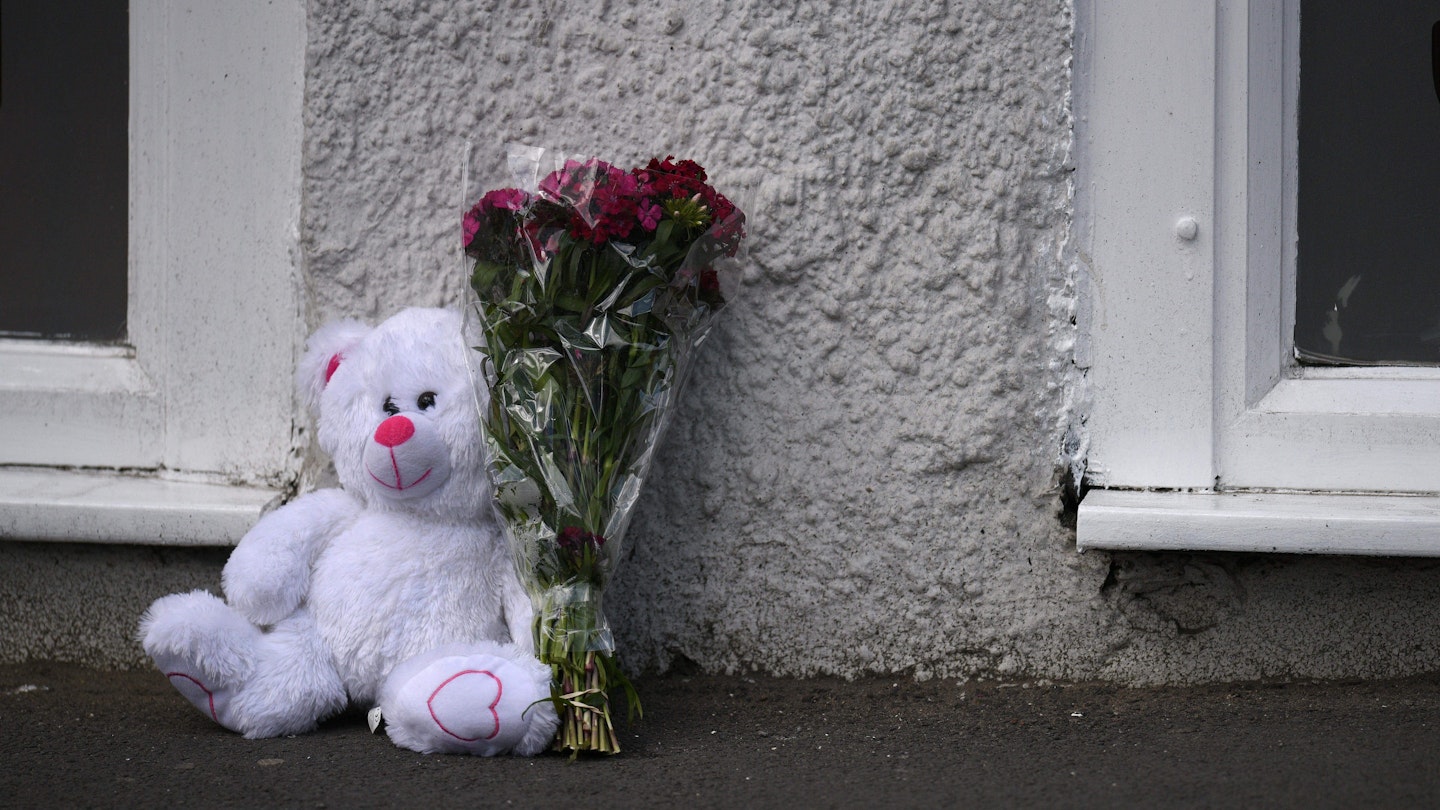If you're struggling with how to talk to your children about terrorism and terrorist attacks, you're not alone. We asked an expert for tips on how to approach this tricky and upsetting subject...
It's a conversation no parent wants to have, but sadly, with recent horrific acts of terrorism in the UK and abroad, it is natural that children will want to ask questions about what they have seen in the news, or what they have heard from their friends.
But how should parents respond to children wanting to know more about ## terrorism and terrorist attacks?
We approached Di Stubbs, Consultant to Family Services Team at Winston’s Wish - a charity for bereaved children - for advice on how to approach the topic sensitively, carefully, and in a way that informs their children - without frightening them.
“There is a natural instinct to want to protect children from things which are distressing," Di explained. "That can mean that adults avoid having conversations about difficult issues.
“However, that impulse may be unhelpful to children who can be more confused and frightened by partial information than by the truth when that is explained simply and clearly."
Here are Di's top tips for addressing the subject of terrorism with your little ones...

1. Use simple, direct language
When broaching a subject as upsetting as terrorism, it's natural the you might become emotional - and this could be reflected through your language. However, Di insisted that when talking about acts of terrorism with children, it's important to make sure the words you use are clear and appropriate to the age of the child you're talking to.
Here are some examples of sentences and phrases you could use...
"All this news is because something very bad and very sad happened to some people in [name of place] (maybe show where this is on a map). What seems to have happened is that people were killed while they were having an ordinary evening out."
"It is very unusual that something like this happens. This is one of the reasons why it is on the news and lots of people are talking about it; it is also because it is very upsetting that something like this could happen."
"Everyone who knows the people who were injured or killed are very, very sad."
2. Let your children know that you are willing to talk to them about terrorism, even though it's an upsetting subject
Like adults, it is normal that children will try to make sense of these awful events in their own way. But as children, they will need the support of adults to do this, so it's important your children feel comfortable to broach this tricky subject with you.
If you feel you can, be honest and try to avoid euphemisms (e.g. say ‘died’ not ‘gone away’ or ‘lost’). This will avoid confusion, build trust and reassure children that it is ok to talk openly about difficult things.
This may lead to many more questions about death and dying, and also to questions about what happens after death.
If the children want to know ‘why the events in Paris happened?’ you could say something like:
‘No-one can completely know why. We know it wasn’t an accident. These people have been shot or blown up simply because they were in the wrong place at the wrong time. It’s so, so difficult to understand why anyone would be so cruel as to kill strangers.’
Older children will appreciate more details and the opportunity to explore why people do such desperately terrible things and the way the relatives of the dead and injured are feeling.
This can be an opportunity to help young people develop their empathy and reflect on the value of life and relationships.

3. Stick to facts
As an adult, you will probably have lots of different views and opinions around the complext subject of terrorism, however many of these are unhelpful for children. If you find it possible, try and distinguish between bad acts and bad people.
Children find the idea of bad people particularly frightening. Children are also very fair-minded and will want reassurance that the people who did this will be punished.
It is really important to make the distinction for children between the beliefs and actions of these very few individuals and the beliefs and actions of the very great majority of people who share the name of their religion. Not only would it be morally wrong to blame all ‘Muslims’ but it also confusing for children (who may be Muslim, have Muslim friends or teachers) and makes them feel less safe in the world.
For example, try saying: "All people who have a religious belief really should believe in peace and being kind to other people. Very occasionally, a handful of people misunderstand what their religion teaches them and think that their God wants them to do something cruel to show their belief.
"But what happened in Paris is not about differences between people’s religions – some of the people who were killed and some of the people who heroically rescued other people were also Muslims."
4. Expect children to ask questions
Because of the unusual and horrific details of this crime, it is natural that children will question whether this might happen where they live or to people they know. When high profile events such as this happen, young people may temporarily lose their sense of security.
They may ask questions such as, "what would happen to me if you were killed?" or "What would happen if I had to hide from a gunman?"
Try to answer with some solid reassurance, such as:
"We don’t expect anything like this will ever happen here. If one of us died for any reason, you would always be looked after by [insert name of the other parent/aunt/uncle/granny/family friend]. I don’t expect to die for a long time yet."
"The police will do all they can to catch the people who did this. It is really, really unlikely that this will happen to anyone we know. We will keep you safe."
There are good story books for younger children that address death and provide an age-appropriate way to handle these sensitive but important conversations.
Children who are concerned will appreciate a lot of reassurance and maybe more hugs than usual. Keeping a reasonably normal routine going will help them feel secure.

5. Keep an eye on any child who has been bereaved in the past
Coverage of deaths and tragedies in the media can be particularly painful and poignant for those children who have experienced a bereavement. They can identify with those who have just been bereaved and are also taken back, emotionally, to the raw feelings of their own bereavement.
It will help to talk to each other about how you are feeling and don’t feel you have to bottle up your feelings to protect the children - it’ll help them to know that you are finding it hard too.
More expert tips for talking to children about topics such as terrorism...
There is a longer version of these questions and answers on the Winston’s Wish website: www.winstonswish.org.uk.
Each year, Winston’s Wish reach over 40,000 bereaved children and young people through an array of dedicated services. These specialist support programmes include support following death as a result of accident, illness, homicide, suicide and military service.
The Winston’s Wish Helpline, staffed by qualified clinical practitioners, provides guidance and information for anyone supporting a bereaved child - 08452 03 04 05, 9am-5pm Monday – Friday and 7pm-9.30pm on Wednesday.
Do you have any tips you'd like to share about talking to your children about terrorism? Let us know on Facebook or Twitter
READ MORE...
'Angel of Manchester' takes care of 50 traumatised youngsters following Manchester terror attack
Homeless hero who saved lives during Manchester terror attack now has a home!
